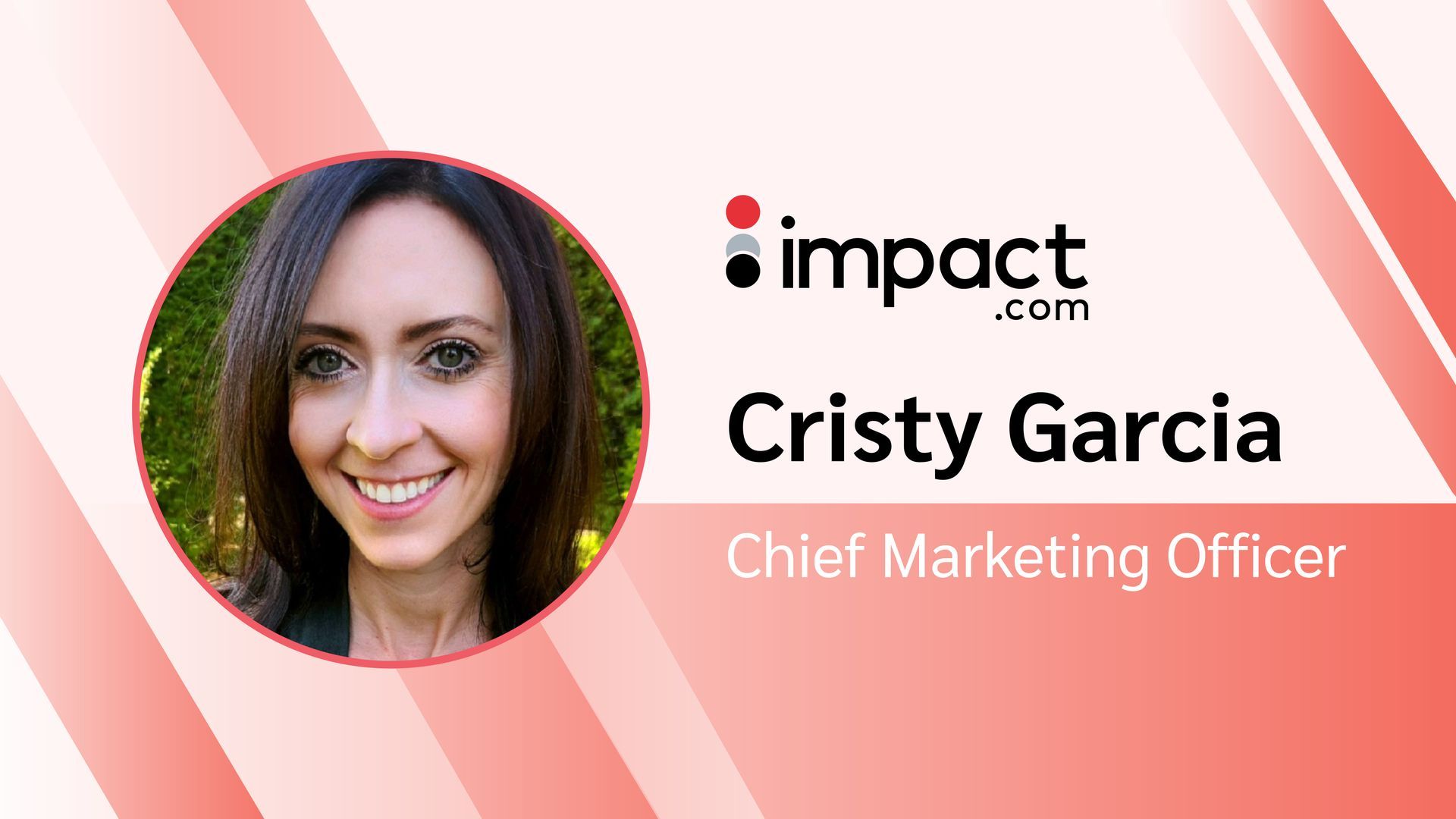MarTech Interview with Cristy Garcia, CMO at impact.com

Cristy Garcia, CMO at partnership management platform impact.com, explains how shifting consumer dynamics means the future of D2C marketing will be dependent on the partnership economy.
Welcome to this MarTech Series chat, Cristy. Tell us about your marketing leadership role at impact.com.
I have been with impact.com for around five and a half years, serving as the Chief Marketing Officer. Throughout my tenure, I have successfully led cross-functional teams in demand generation, public relations, events, SEO, social media, content creation, web development, programs, and brand marketing. Our collective marketing efforts drive over 50% of all new business at impact.com. As CMO, I am focused on driving impact.com’s global marketing strategy while overseeing an exceptional team of marketers who help to ensure impact.com is providing exceptional service to our global network of clients.
What kind of skills should a CMO have in order to be successful?
Succeeding as a CMO requires a diverse skill set with a steadfast focus on the macro market environment and inter-marketing environment. Embodying a data-driven approach is crucial, as it defines strategy, identifies target customers, and facilitates the testing of critical marketing elements that include ad creative, branding, and copy.
With this, having a comprehensive and forward-thinking view of all marketing channels – think organic and paid, earned and partnerships, and others – is absolutely essential. At impact.com we never focus solely on individual channels, instead, we work to harness the power of 360 marketing.
I firmly believe in the power of creativity and “leaning in” with a creative mindset. While metrics and targets are important, authenticity, empathy and human connection are essential and crucial in today’s consumer, personalized world. The human connection and creative mindset are invaluable qualities that resonate in a way that modern marketing technologies like automation, AI and ML cannot. Leading this way keeps marketing more authentic– something I believe is necessary in today’s environment.
What is your approach to D2C marketing in the current scenario? How are you leveraging the partnership ecosystem to meet brands’ overall business goals?
D2C marketing presents a remarkable opportunity for brands aiming to enhance their direct connections with customers, bypassing third-party resellers. By forging strategic alliances, brands can collaborate with creators, influencers, and even their customers to amplify brand awareness and drive revenue growth by tapping into new audiences.
Impact.com recently acquired Saasquatch, a customer referral software that streamlines the process of incentivizing existing customers to recommend the brand’s products or services in exchange for enticing rewards, often in the form of cash. D2C is a perfect avenue for customer advocacy, as prospective customers seeking new or lesser-known brands habitually seek out customer reviews as social proof. Forward-thinking D2C brands are already harnessing customer-led growth to fuel new user acquisition.
As consumer trust in advertising declines, we naturally dedicate more time to research before making purchasing decisions, making us more inclined to share our endorsements of exceptional products or services with our peers. The partnership model employed in D2C marketing is merely a reflection of this innate social behavior. We are very dedicated to the importance of customer trust, which I believe will divide the winners from the laggards in our industry.
Why do so many marketing organizations fail to make customer impact despite having a winning product or marketing strategy?
At impact.com, we firmly believe the future of marketing hinges on authenticity. In a world where consumers rely more on trusted reviews and recommendations than traditional brand advertising, authenticity is the new currency. Advertising, and even salespeople, struggle to gain consumers’ trust compared to recommendations from individuals they know or follow online. Statistics speak for themselves – a staggering 88% of consumers trust personal recommendations, a remarkable 50% more than channels like banner ads, mobile ads, and SEO.
Embracing partnership opportunities, such as influencer marketing or customer referrals (also known as customer-led growth), can propel any business forward by opening doors to new audiences who resonate with brands organically. Think about it – a coupon, a review, or a mention on social media, all from trusted personalities or favorite publishers, carry immense weight as purchasing recommendations. Once again, it all comes down to authenticity fostering trust, as one cannot be achieved without the other.
How are new capabilities in AI and automation elevating your overall marketing efforts?
At impact.com we have been early adopters of AI. Our sales and marketing teams are leveraging AI for content creation or repurposing existing content into multiple assets, research analysis, summaries and even responding to certain types of inbound inquiries.
The entire partnership lifecycle at impact.com – from discovery and recruitment to contract management and payment – is automated. With AI, we can achieve even greater efficiency. Brands and publishers can now create more effective and personalized content, increasing engagement and conversion rates.
What are your thoughts on the growing importance of RevOps in the martech space?
The success of our operations relies heavily on the MarketingOps and RevOps teams. RevOps fosters better alignment, communication, analysis, and data sharing among vital business units like marketing, sales, and finance. It serves as a centralized source of truth for data across these teams, effectively breaking down organizational silos and facilitating informed decision-making. Personally, I can recognize the profound impact these teams have on my own performance.
Despite recognizing RevOps’ significance, merely 41% of executives express a strong sense of understanding regarding its nature. This prevailing uncertainty undeniably hinders companies from reaching their full potential, emphasizing the urgent need for more education on the vital role RevOps plays within an organization.
Also published in: MartechSeries



